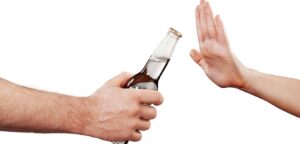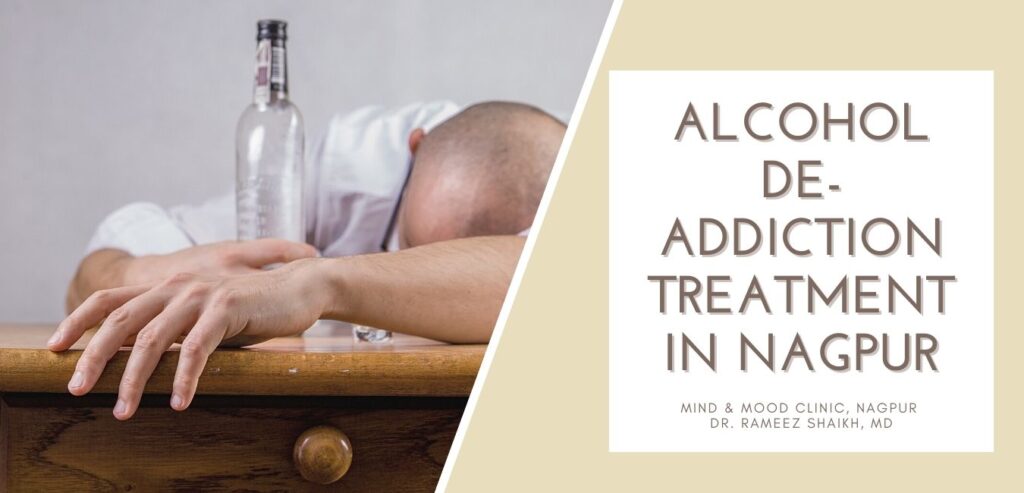When a patient’s drinking causes distress or suffering, doctors diagnose them with alcohol use disorder (AUD). When a patient replies “yes” to two or more of the following questions, the condition can range from mild to severe.
 Have you done any of the following in the last year:
Have you done any of the following in the last year:

 Have you done any of the following in the last year:
Have you done any of the following in the last year:
- Have you ever found yourself drinking more or for longer than you intended?
- Have you ever wished to cut down or stop drinking, or attempted but failed to do so?
- Have you been drinking a lot lately? Or being unwell and recovering from the effects?
- Have you ever had a strong desire or urge to drink?
- Have you ever found that drinking — or being unwell from drinking — made it difficult to take care of your home or family? Or harmed your job prospects? Or perhaps there are issues at school?
- Have you continued to drink despite the fact that it was causing conflict with your family or friends?
- Have you given up or reduced your participation in things that were essential to you or brought you pleasure in order to drink?
- Have you ever been in a position while or after drinking that put you in danger (such as driving, swimming, using machinery, walking in a dangerous location, or having unsafe sex)?
- Have you continued to drink despite the fact that it was making you feel unhappy, worried, or aggravating another health issue? Alternatively, after having experienced a memory blackout ?
Behavioral Treatments for Alcohol Use Disorder
Behavioral treatments, often known as alcohol therapy, entail working with a De-addiction Specialist Dr. Rameez Shaikh, MD to identify and address the habits that lead to heavy drinking. Certain characteristics of behavioural treatments can be found in all of them, including:
- Developing the skills necessary to quit or cut back on drinking.
- assisting in the development of a solid social support system.
- Attempting to set attainable objectives.
- Managing or avoiding the factors that may lead to relapse.
Behavioural treatments
- Cognitive–Behavioral Therapy : can be done in small groups or one-on-one with a therapist. This type of therapy focuses on recognising the feelings and conditions (referred to as “cues”) that contribute to binge drinking and coping with stress that can lead to relapse. The goal is to change the thinking processes that lead to alcohol abuse and to learn how to deal with everyday events that could cause problem drinking.
- Motivational Enhancement Therapy : The therapy focuses on determining the benefits and drawbacks of getting treatment, devising a plan for changing one’s drinking habits, gaining confidence, and learning the skills needed to stick to the programme.
- Marital and Family Counseling : When compared to patients who receive solo counselling, studies demonstrate that strong family support through family therapy increases the likelihood of maintaining abstinence (stopping drinking).
- Brief Interventions : The counsellor informs the client about his or her drinking habits and associated risks. The counsellor will work with the client to develop goals and provide strategies for making a change after the client receives tailored feedback.
What Drugs Have Been Approved by the FDA?
Certain drugs have been demonstrated to be useful in assisting people in quitting or reducing their drinking and preventing relapse. Three drugs for treating alcoholism have been approved by the US Food and Drug Administration (FDA), and others are being investigated to see if they are effective.- Naltrexone can aid in the reduction of binge drinking.
- Acamprosate makes abstinence simpler to sustain.
- Disulfiram inhibits the body’s breakdown (metabolism) of alcohol, resulting in unpleasant side effects such as nausea and skin flushing. Some people may be able to resist drinking while taking disulfiram because of these unpleasant side effects.

Dr. Rameez Shaikh (MBBS, MD, MIPS) is a consultant Psychiatrist, Sexologist & Psychotherapist in Nagpur and works at Mind & Mood Clinic. He believes that science-based treatment, encompassing spiritual, physical, and mental health, will provide you with the long-lasting knowledge and tool to find happiness and wholeness again.
Dr. Rameez Shaikh, a dedicated psychiatrist , is a beacon of compassion and understanding in the realm of mental health. With a genuine passion for helping others, he combines his extensive knowledge and empathetic approach to create a supportive space for his patients.

